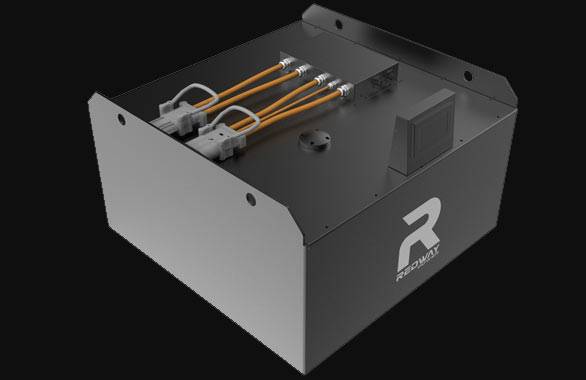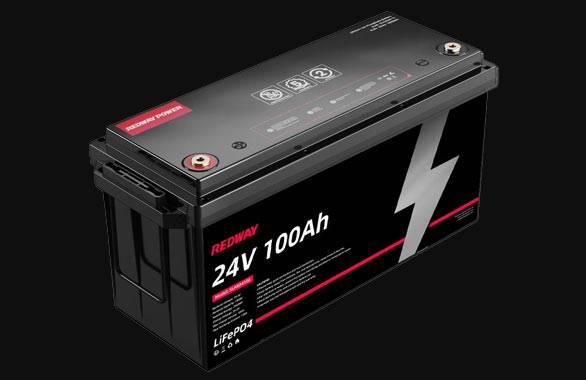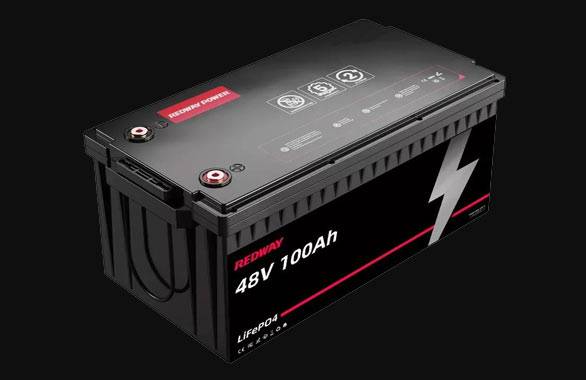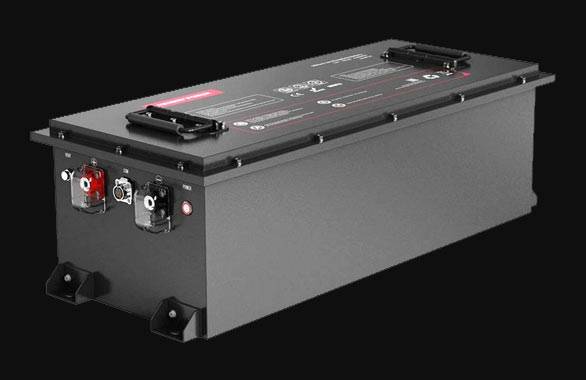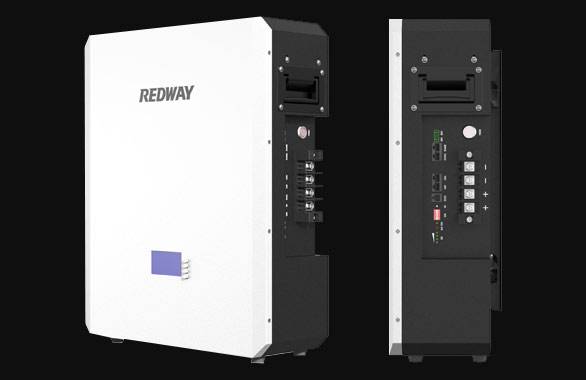- Forklift Lithium Battery
- Golf Cart Lithium Battery
- Rack-mounted Lithium Battery
51.2V 100Ah Rackmount LiFePO4 Battery
8000 times (80% DOD 0.5C)
Optional SNMP for TELECOM - Car Starter Battery
- 12V LiFePO4 Battery
12V 150Ah Lithium RV Battery
Bluetooth App | Self-heating
LiFePO4 | Group 31
UL 1642 | IEC 62619 - 24V LiFePO4 Battery
- 36V LiFePO4 Battery
- 48V LiFePO4 Battery
- 60V LiFePO4 Battery
60V 100Ah Lithium Battery (AGV, AMR, LGV)
Peak Discharge Current 400A
500 x 298 x 349 mm - 72V~96V LiFePO4 Battery
72V 100Ah Lithium Golf Cart Battery
Peak Discharge Current 315A (10S)
740 × 320 × 246 mm - Wall-mounted Lithium Battery
51.2V 100Ah 5kWh
Wall-mounted Battery532 x 425 x 170 mm / LiFePO4
>8000 Cycles (80% DOD 0.5C)
RS485 / CAN-bus
for Solar Home ESS - Home-ESS All-in-One
51.2V 32kWh
All-in-On HESS SystemPowerAll
51.2V / LiFePO4
>8000 Cycles (80% DOD 0.5C)
RS485 / CAN-bus / WiFi
All-in-One for Home ESS
Understanding Voltage Levels and Battery Capacity: A Comprehensive Guide to 48V Batteries
48V batteries are widely used in electric vehicles, solar energy systems, and industrial equipment due to their efficient power delivery and versatile applications. Understanding voltage levels and battery capacity is essential to optimize performance, ensure safety, and maximize battery life. Battery voltage indicates its current state of charge, while capacity measures how much energy the battery can store and deliver over time.
What is the nominal voltage of a 48V battery and how does it vary with charge?
A 48V battery typically has a nominal voltage around 51.2 volts for LiFePO4 chemistries, with fully charged voltage reaching about 54.4 to 54.6 volts and fully discharged voltage around 40 to 42 volts. Voltage varies with state of charge, decreasing gradually as the battery discharges, but maintaining a relatively stable level throughout most of the discharge cycle before a rapid voltage drop near depletion.
Chart: 48V LiFePO4 Battery Voltage vs. State of Charge
| State of Charge | Battery Voltage (Volts) |
|---|---|
| 100% | 54.4 |
| 90% | 53.6 |
| 80% | 52.8 |
| 70% | 52.0 |
| 60% | 51.2 |
| 50% | 50.0 |
| 40% | 49.2 |
| 30% | 48.0 |
| 20% | 47.2 |
| 10% | 46.0 |
| 0% | 42.0 |
How is battery capacity defined and measured in 48V systems?
Battery capacity refers to the total amount of electric charge a battery can deliver at its rated voltage, commonly measured in ampere-hours (Ah) or watt-hours (Wh). For example, a 48V battery rated at 100Ah can theoretically supply 48 volts at 100 amps for one hour or lower amperage over a longer period. Capacity depends on the battery’s size, design, and chemistry, directly influencing run time and power availability.
Why is understanding voltage levels important for battery health and performance?
Voltage levels provide a snapshot of battery charge and health, enabling users to monitor battery status, prevent over-discharge, and optimize charging cycles. Maintaining voltage within recommended ranges safeguards battery longevity and avoids damage caused by excessive depletion or overcharging. Voltage monitoring also ensures consistent equipment performance, especially in electric vehicles and renewable energy systems.
How do temperature and usage conditions affect 48V battery voltage and capacity?
Battery voltage and capacity are influenced by temperature, load, and usage patterns. Cold temperatures can reduce voltage and available capacity temporarily by increasing internal resistance, whereas high temperatures might accelerate capacity loss over time. Heavy loads decrease voltage due to internal drop, and frequent deep discharges without proper charging can degrade capacity prematurely.
What charging practices optimize voltage and capacity for 48V batteries?
Optimal charging includes using compatible chargers that support multi-stage charging (bulk, absorption, float) to safely bring voltage to full charge without overshooting. For lithium iron phosphate batteries, charging voltages typically peak around 54.4 to 58.4 volts depending on manufacturer specifications. Avoiding prolonged overcharging or deep discharge cycles helps preserve capacity and voltage stability.
How does Redway Power contribute to 48V battery technology and reliability?
Redway Power leverages 13 years of expertise and MES-enabled manufacturing to produce high-quality 48V lithium battery packs with tightly controlled voltage regulation and capacity optimization. Their advanced battery management systems ensure balanced cell operation, precise voltage monitoring, and protection against voltage extremes, delivering batteries that uphold sustained performance and extended service life.
What are common applications where understanding 48V battery voltage and capacity is critical?
48V batteries are integral to electric golf carts, forklifts, solar power storage, electric bikes, and industrial machinery. In these applications, correct voltage management ensures efficient power delivery, safeguards electronic controls, and maximizes operational uptime. Monitoring capacity helps plan recharge intervals and avoid unexpected downtime.
How can users accurately measure and interpret voltage to estimate remaining battery life?
Voltage measurement should be taken under no-load or low-load conditions to accurately reflect the battery’s true state of charge. Voltage charts or BMS readouts convert voltage into percentage charge estimates. Understanding voltage dips during heavy load versus resting voltage prevents misinterpretation and allows timely maintenance or replacement.
What safety considerations are associated with managing the voltage and capacity of 48V batteries?
Proper voltage control prevents thermal runaway, overcurrent conditions, and hazardous failures. Battery management systems continuously monitor voltage and capacity to trigger protective actions like disconnecting loads or adjusting charge rates. Safe handling includes adherence to voltage limits and avoiding damage that could compromise battery integrity.
Redway Power Expert Views
“Voltage stability and capacity precision form the cornerstone of battery reliability in high-demand 48V systems. Redway Power’s MES-driven manufacturing ensures each battery pack meets exacting voltage performance standards, sustaining power delivery across diverse applications. Our integrated BMS technology not only maximizes capacity utilization but also secures user safety, reflecting our commitment to excellence in battery innovation.” — Redway Power Expert
Conclusion
Mastering the understanding of 48V battery voltage levels and capacity is essential for optimizing energy efficiency, performance, and longevity across a wide range of applications. Voltage reflects the charge state and guides safe operation, while capacity dictates the usable energy and runtime. Partnering with expert providers like Redway Power guarantees access to premium battery technology designed for precision voltage control and capacity management, supporting sustained and reliable power solutions.
FAQs
Q: What voltage range indicates a fully charged 48V battery?
A: Typically between 54.4V and 54.6V for lithium iron phosphate batteries.
Q: How is battery capacity expressed and why does it matter?
A: Capacity is expressed in ampere-hours (Ah) or watt-hours (Wh) and measures the total usable energy, affecting runtime and performance.
Q: Does temperature affect how a 48V battery performs?
A: Yes, cold temperatures can temporarily reduce voltage and capacity, while high temperatures may degrade battery life over time.
Q: How often should voltage be monitored in 48V battery systems?
A: Regular monitoring during use and charging helps maintain health and prevents damage from over-discharge or overcharging.
Q: How does Redway Power enhance the reliability of 48V batteries?
A: Redway Power’s precision manufacturing and advanced BMS technologies ensure balanced voltage and optimized capacity, delivering durable and safe battery solutions.


